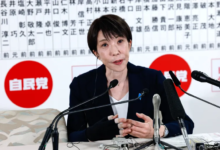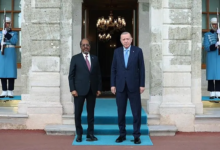Libyan Dinar Loses Over 75% of Its Value in 7 Years: Economic Challenges and Proposed Solutions

The Libyan local currency, the dinar, has suffered a severe blow, losing more than 75% of its value over the past seven years, according to statistics from the Central Bank. This comes after the Central Bank devalued the dinar for the first time since 2020, by 13.3% against foreign currencies, at a time when the country’s economy is facing structural imbalances, a reduced purchasing power, real income erosion, and rising inflation, according to observers.
The Central Bank justified the decision to devalue the currency by citing the increased dual spending by the eastern and western governments. Last year, government spending exceeded 224 billion dinars (about $46 billion), which exacerbated the national debt gap, reaching 270 billion dinars (about $55.7 billion). The Central Bank has predicted that the financial gap will widen to over 330 billion dinars (about $68 billion) by the end of the year if a unified budget is not adopted.
On the other hand, Mraji Ghith, former Deputy Minister of Finance, argued that the Central Bank’s justification for the devaluation of the currency falls outside its responsibilities and is instead the government’s duty. He stressed that the government should halt its expansionary public spending. Ghith also pointed out that the timing of the decision was inappropriate given the current economic situation and the continued erosion of the dinar’s value.
In this context, economist Ali Al-Salah stated that the Central Bank’s decision to set an exchange rate above the real equilibrium price marked the beginning of financial dominance by the government, which led to the loss of the Central Bank’s monetary independence.
On the other hand, economist and investment director at Pearls Capital, Monzer Al-Shahoumi, offered a different perspective, considering the Central Bank’s decision, despite its direct social costs due to the reduction in purchasing power, as an inevitable and courageous option in the absence of realistic alternatives in the short term. However, he described the decision as a “temporary painkiller,” warning that without comprehensive financial reforms, the dinar would remain vulnerable to sharp fluctuations and citizens would continue to pay the price.
When asked whether the Central Bank could have addressed the crisis without devaluing the dinar, Al-Shahoumi responded, “Yes, the severity of the crisis could have been mitigated if bold reforms had been implemented earlier.”
Al-Shahoumi also discussed several potential solutions:
- Introducing unplanned real estate assets into the economic cycle through legal settlement and new urban planning, which could create a massive real estate wealth.
- Attracting the cash mass outside the banking system and converting it into investment tools.
- Improving the customs and tax collection system.
- Diversifying public revenue sources in local currency, away from oil price fluctuations.
Regarding the price gap between the dollar in the official and parallel markets, Ghith explained that the black market does not generate dollars out of thin air, but rather feeds on them due to weak oversight of foreign currency use mechanisms, such as letters of credit and what is known as personal allowances, which have essentially become a channel for currency speculation.
A currency dealer in the black market, who preferred to remain anonymous, told Al Jazeera that purchasing operations are now linked to the dollar’s price in the parallel market, as the official price at the Central Bank is not available to traders. Based on this information, the value of each commodity is determined according to the dollar’s price in the parallel market.
Regarding the stance of the Libyan Parliament, which imposed a 20% tax on foreign currency purchases in November 2024, member of Parliament Abdul Moneim Al-Arfi told Al Jazeera that adjusting the exchange rate is the Central Bank’s prerogative. He noted that Parliament will hold a session on November 15 to meet with the Central Bank’s governor, Naji Issa, and board members to explain the reasons and implications of imposing the tax on foreign currency sales and devaluing the dinar. The session will also discuss the future of the Libyan dinar and the country’s economic situation.
In terms of restoring confidence in the economy, Al-Salah emphasized that this requires a coordinated approach between economic, financial, commercial, and monetary policies. He added that the Central Bank must determine the total demand it can defend the currency value against.
Regarding immediate solutions, Al-Shahoumi urged the Central Bank to curb public spending, especially on salaries and subsidies, reduce the administrative apparatus, rationalize external spending, and convert subsidies into a targeted cash system as the only way to halt financial deterioration.
Al-Shahoumi also stressed that achieving short-term monetary stability requires the Central Bank to enhance its monetary policy tools, improve liquidity management, and control foreign currency exchange rates.
Regarding the scenario of floating the dinar, Ghith stated that the Central Bank is now chasing the black market, and if this is the case, it may need to float the local currency and set its exchange rate according to supply and demand mechanisms. However, he noted that floating under the current circumstances, with the Central Bank being the sole source of foreign currency, is unrealistic and inappropriate in the current context.
Finally, Al-Shahoumi emphasized that saving the dinar cannot be achieved through monetary decisions alone but requires stimulating real economic growth. Libya needs to reactivate its productive sectors, particularly the oil refining industries, which would increase national income and boost foreign currency reserves.
He also called for controlling the fiscal deficit—by stopping deficit spending or limiting it to no more than 5% of GDP within the framework of developmental projects—stating that this would have a direct impact on stabilizing the exchange rate.
Additionally, Al-Shahoumi advocated for reducing the money supply to align with the current size of the economy, which is a necessary measure to curb inflation and restore market confidence.








